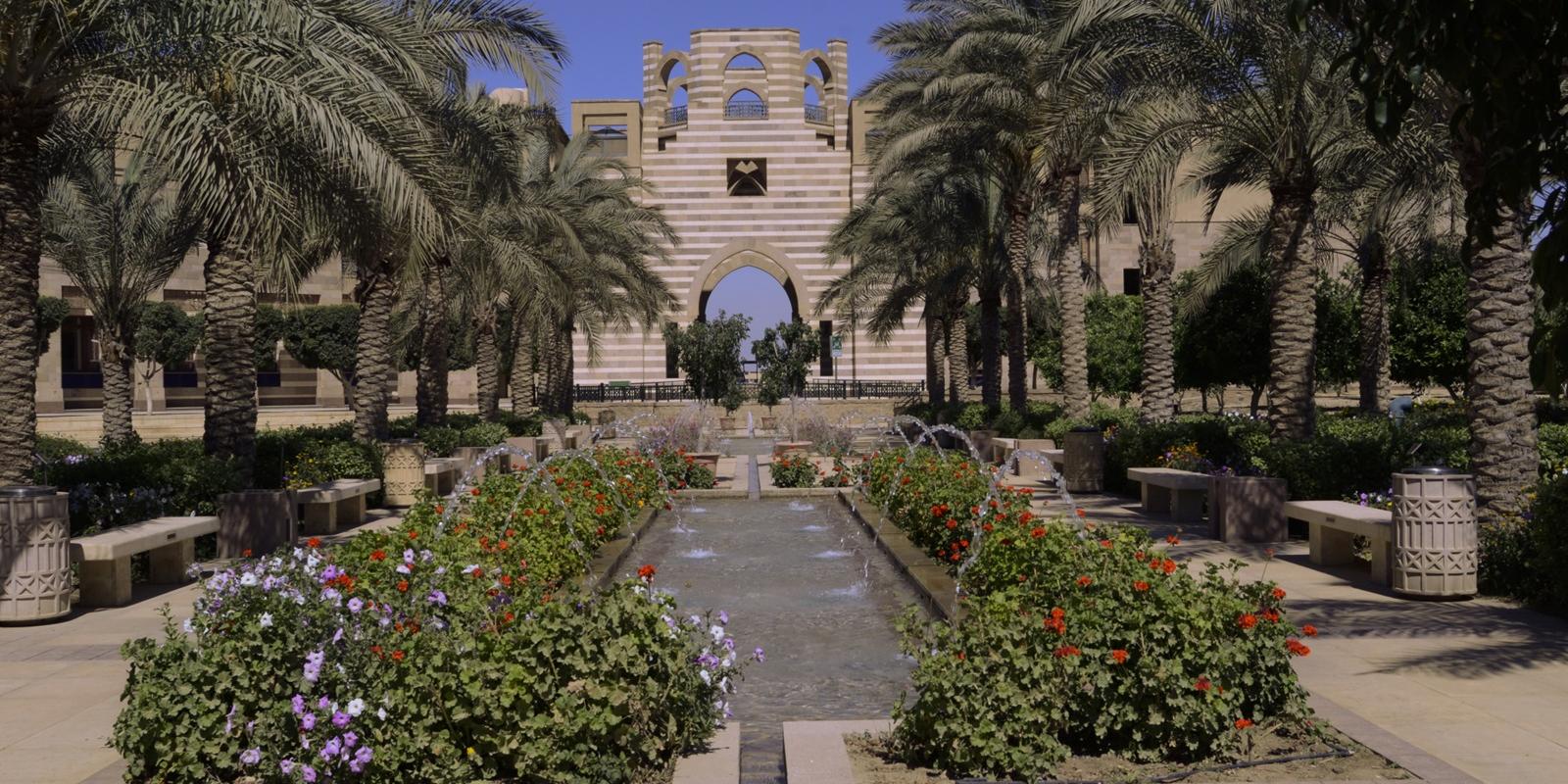
Abou-Zeid Honored by International Center for Academic Integrity
Mohamed Naguib Abou-Zeid, professor and chair of the Department of Construction and Architectural Engineering at AUC, has recently been recognized by the International Center for Academic Integrity (ICAI) for serving as its board chair for two years, from 2012 to 2014, and as a board member for 10 years. AUC is the first institution in the Middle East and North Africa region to become an ICAI member, joining in 2002.
“I feel honored and pleased for myself and –– if I may –– for AUC to receive this award,” enthused Abou-Zeid. “Thanks to the University’s support, we are being recognized in the integrity arena, both regionally and globally.”
Abou-Zeid contributed largely to the University’s first Code of Ethics, to which all faculty, staff and students pledge. The code serves as a statement of values, definitions, violations and penalties. He was also one of the initial members of the University’s task force on academic integrity, which was founded in 2002. The task force has since become a permanent University committee, known as the Academic Integrity Council, with Abou-Zeid as chair. “The Academic Integrity Council seeks to benefit from available practices inside and outside AUC in order to enhance awareness and recommend policies to combat violations,” explained Abou-Zeid. “It also undertakes the vital task of looking into cases of violation and recommending the appropriate action to be taken.”
In 2004, Abou-Zeid joined the ICAI as the first non-North American member and quickly moved up the ranks of the center to become a board member. In 2010, he successfully spearheaded the Fostering Academic Integrity Conference in Cairo, the first-of-its-kind in the region; was selected to serve as chair of the ICAI’s advisory council; and was awarded the center’s prestigious Don McCabe Award for achievement in academic integrity –– all within the same year.
Following his recognition by ICAI, Abou-Zeid gave a keynote address at the center’s 22nd annual conference in Jacksonville, Florida. “In my address, I gave an overall view of the education scene across the globe and pinpointed why the world is paying extra attention to international students,” he noted. “I also emphasized the need for better coordination amongst institutions worldwide.”
Looking ahead, Abou-Zeid will continue to focus on promoting academic integrity within the University, encouraging staff, faculty and students alike to stand for the ethical pursuit of academic honesty. “I am glad to announce that new AUC colleagues have joined both the Academic Integrity Council and committee,” he said. “They bring with them many good ideas and have already exerted great efforts in helping us to move forward, and for that I am both grateful and optimistic.”
With member institutions in six continents, the International Center for Academic Integrity works to identify and promote academic integrity values among various University constituents, including students, faculty and administrators. It assesses the status of academic integrity in member institutions, providing expertise and conducting research to raise awareness, as well as adopt preventive measures and effective policies to foster academic integrity campuswide.
